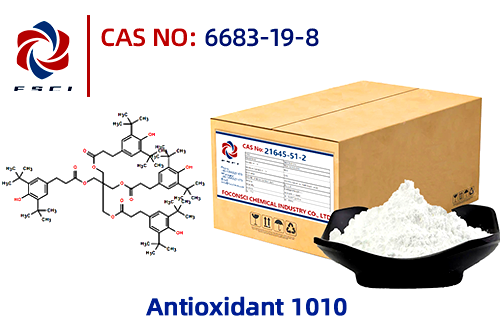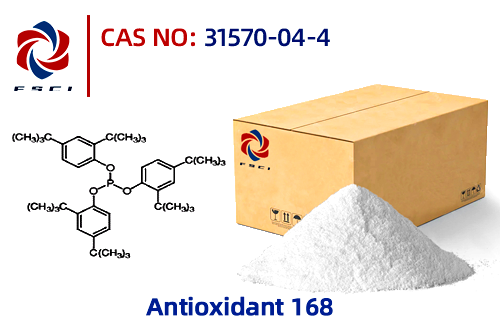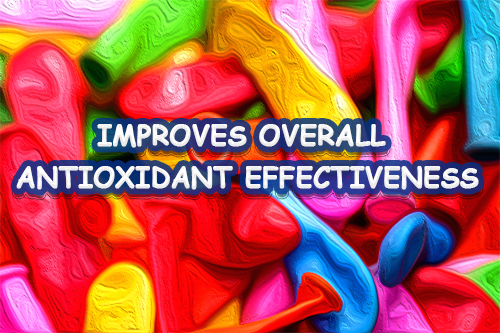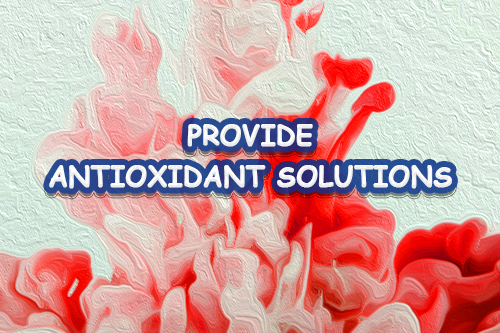Why do we need to add antioxidant 168 after adding antioxidant 1010 ?
|
In the plastic and polymer industries, antioxidants are essential additives. Their primary role is to prevent material degradation caused by oxidation during both processing and use. Among the common antioxidants, Antioxidant 1010 and Antioxidant 168 are frequently used together. This combination is intentional, leveraging their unique properties and synergistic effects to offer comprehensive protection for the materials. Antioxidant 1010 (CAS 6683-19-8) Antioxidant 1010 is a hindered phenol antioxidant. Its primary function is to prevent oxidative degradation of polymers exposed to heat or oxygen by interrupting the chain reaction of free radicals. Antioxidant 1010 is highly stable at elevated temperatures and effectively inhibits free radicals generated during polymer processing. Its ability to capture free radicals makes the material more durable during use, thereby extending the product’s lifespan. Antioxidant 168 (CAS 31570-04-4) Antioxidant 168 is a phosphite antioxidant that protects polymers primarily by decomposing peroxides. Unlike Antioxidant 1010, Antioxidant 168 targets peroxides produced during polymer degradation, breaking them down to prevent further decomposition and the generation of additional free radicals. As a result, Antioxidant 168 is highly effective in mitigating polymer degradation in its early stages. By reducing peroxide concentrations, it minimizes free radical formation, further safeguarding the polymer material. Why is it necessary to add Antioxidant 168 after Antioxidant 1010 ? While Antioxidants 1010 and 168 can each function independently, their combined use significantly enhances overall antioxidant effectiveness. First, Antioxidant 168 decomposes peroxides to curb free radical generation. Subsequently, Antioxidant 1010 captures and neutralizes the remaining free radicals.This dual mechanism offers superior protection under high temperatures and harsh conditions, extending the polymer materials' service life significantly. Moreover, combining these antioxidants allows for optimized dosages, preventing the excessive use of any single antioxidant. For example, excessive Antioxidant 1010 might cause discoloration or other adverse effects. By coordinating with Antioxidant 168, the amount of 1010 can be reduced while maintaining or even improving the overall antioxidant performance. Conclusion In the plastics and polymer industries, the combination of Antioxidants 1010 and 168 provides an effective and comprehensive antioxidant solution. This pairing not only effectively prevents oxidative degradation during processing and use but also significantly prolongs material lifespan through synergistic effects. Therefore, carefully selecting and matching antioxidants is crucial for ensuring the long-term stability and durability of polymer materials. Contact us
|
 |


 EN
EN
 AR
AR
 BG
BG
 HR
HR
 CS
CS
 DA
DA
 NL
NL
 FI
FI
 FR
FR
 DE
DE
 EL
EL
 HI
HI
 IT
IT
 JA
JA
 KO
KO
 NO
NO
 PL
PL
 PT
PT
 RO
RO
 RU
RU
 ES
ES
 SV
SV
 TL
TL
 IW
IW
 ID
ID
 LV
LV
 LT
LT
 SR
SR
 SK
SK
 VI
VI
 HU
HU
 TH
TH
 TR
TR
 GA
GA
 CY
CY
 KA
KA
 LA
LA
 MN
MN
 KK
KK
 LB
LB







